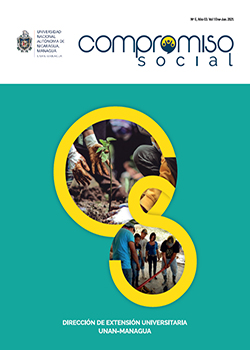Stereotypes and views of older adults in the media
DOI:
https://doi.org/10.5377/recoso.v3i5.13035Keywords:
Older adults, media, stereotypesAbstract
Every day we communicate in different ways and with different people. We exchange information at every moment, every instant. We do this in its various forms, such as interpersonal-massive, direct and indirect, immediate and mediated by traditional means, or state-of-the-art technology. Communication also implies the exchange of images, information, knowledge, gestures, words ... in all of its meanings, including stereotypes, prejudices and multiple forms of discrimination. We send WhatsApp messages or audios, photos and videos on Instagram, and we share articles that interest us through Facebook. But when we have to do it with an older adult, we usually do it face to face. Sometimes we assume that they do not have a cell phone, or that they do not know how to use social networks. Regarding the methodology, an analysis was carried out on the languages that circulate in the Argentinien media, especially in the audiovisual media and specifically regarding police news reports.
A theoretical approach was also carried out on different conceptualizations and authors that address the subject. As a result and conclusions, we can mention the following questions: do we change our language or our expressions towards Older Adults? And when we are in a communication medium, how do we refer to them? Do we use a stereotype such as “abuelos” o “viejitos” taking advantage of the use of the diminutive as if it were more condescending? With this work we propose to reflect on the use of language in the media when we refer to a group that - many times - is invisible or is only the subject of news in the face of police events.
Downloads
Downloads
Published
Versions
- 29-07-2021 (2)
- 01-07-2021 (1)
How to Cite
Issue
Section
License
Copyright (c) 2021 Universidad Nacional Autónoma de Nicaragua, Managua (UNAN-Managua)

This work is licensed under a Creative Commons Attribution-NonCommercial-ShareAlike 4.0 International License.




